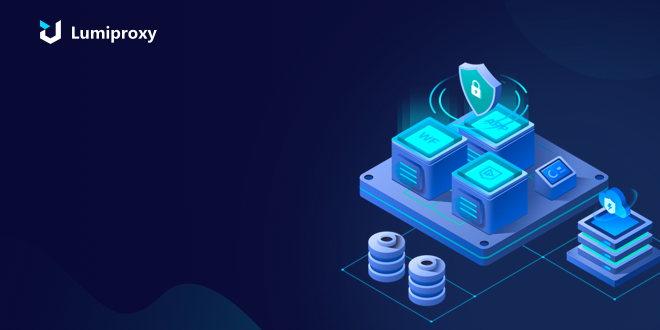In today's information age, where freedom of Internet access and protection of personal privacy have become increasingly important, Facebook proxy is a tool that provides a way for users to bypass blocking and protect their privacy. In this paper, we will delve into the concepts, principles, and usage scenarios of Facebook proxies to help readers better understand and rationally utilize this technology.
The Concept of Facebook Proxy and Its Application in Web Accessing
Facebook proxy refers to a way to access Facebook websites and services through a proxy server. It can help users bypass geographic restrictions, access blocked websites and services, and protect their private information.
In some regions, access to social media sites such as Facebook may be restricted by government censorship, and the use of proxies can help users circumvent these restrictions.

Motivations and Purposes for Using Facebook Proxies
Motivations for using Facebook proxies include accessing blocked websites, bypassing geographic restrictions, and protecting personal privacy. In some countries or regions, governments may block or censor specific websites, and using proxies can help users bypass these blocks and access information freely. In addition, some users may also choose to use proxies to hide their real IP address and geolocation information for privacy purposes, preventing them from being tracked and monitored by third parties.
Facebook Proxy Basics
Facebook proxy and how it works
A Facebook proxy is a way to access Facebook websites and services through a proxy server. Users access Facebook websites and services by sending their requests to a proxy server, which in turn sends the request to the target website and then returns the response to the user. In this way, the user's real IP address and geolocation information is hidden, improving the user's online security and privacy protection.
Facebook proxy workflow and data transfer process
The workflow of Facebook proxy includes user sending request, proxy server forwarding request, target website responding to the request and proxy server returning the response to the user. In the process of data transmission, the proxy server plays the role of a relay, so that the user and the target website establish an indirect connection, thus realizing the user's anonymous access and privacy protection.
Why you can bypass blocking and restrictions by using a Facebook proxy
The main reason why you can bypass blocking and restrictions by using a Facebook proxy is that the proxy server hides the user's real IP address and geolocation information. When a user accesses a target website through a proxy server, the target website will not be able to obtain the user's real IP address and thus will not be able to restrict or monitor the user. In this way, users can freely access blocked websites and services, realizing the free dissemination and access to information.
Purpose and Scenarios of Using Facebook Proxy
A. Bypassing Geographical Restrictions
1. Using Facebook proxy to access blocked websites and services
In some countries or regions, governments may block or censor specific websites, and using proxies can help users bypass these blocks and access information freely. For example, some social media sites may be blocked in certain regions, and using a proxy can help users circumvent these restrictions and stay connected with others and access information.
2. Using Facebook proxies to browse the Internet in censored areas
In some censored areas, the government may strictly monitor and censor the Internet, restricting users' freedom of access to the Internet. The use of proxies can help users bypass such censorship and browse the Internet freely to obtain information and resources.
B. Protecting Personal Privacy
1. Using Facebook proxy to hide real IP address and geographic location information
On the Internet, the user's real IP address and geographic location information may be obtained and utilized by malicious third parties, resulting in privacy leakage and security risks. The use of proxies can help users hide their real IP address and geographic location information, and improve the level of online security and privacy protection.
2. Prevent third parties from tracking users' online activities and personal information
On the Internet, some third parties may use users' online activities and personal information to track and monitor, so as to obtain users' private information. The use of proxies can help users prevent these third parties from tracking and protect users' privacy and information security.

Types and Choices of Facebook Proxy
A. Residential IP Proxy
Introducing the features and benefits of residential IP proxies
Residential IP Proxy is a way to provide proxy services by utilizing residential network connections. It is characterized by IP addresses coming from real residential networks and therefore has a high level of trust and stability. The advantage of residential IP proxy is that it can better simulate the access behavior of real users and reduce the probability of being recognized as a proxy by the target website, thus improving the access success rate.
Analyzing the applicable scenarios and limitations of using residential IP proxies
Residential IP proxies are suitable for scenarios that require a large number of visits to the target website and simulate the behavior of real users, such as data collection, network testing, etc. However, the number of residential IP proxies is limited. However, the number of residential IP proxies is limited and subject to network bandwidth and stability, so they may be restricted in high concurrency or prolonged use.
B. Static IP Proxy
Explain how static IP proxies work and their benefits
Static IP Proxy is a way of providing proxy services using a fixed IP address. It works by the user accessing the proxy server through a static IP address, and the proxy server then forwards the request to the target website. The advantages of static IP proxy are that the IP address is stable, not easy to be recognized as a proxy by the target website, and it can provide faster response speed and higher access success rate.
Exploring the role of static IP proxies in bypassing blocking and protecting privacy
Static IP proxies have a role in bypassing blocking and protecting privacy. With stable IP addresses, static IP proxies can better protect users' private information and reduce the risk of being tracked and monitored by third parties. At the same time, static IP proxies are also able to bypass blocking more consistently and freely access blocked websites and services.
C. Data Center Proxy
Analyzing the features and functions of data center proxies
Data center proxy is a way to provide proxy services using servers and IP addresses provided by data centers. It is characterized by IP addresses from data centers with high stability and availability. The functions of data center proxies include bypassing blocking, protecting privacy, and increasing access speed.
Discuss the advantages, disadvantages, and scenarios for using data center proxies
The advantages of data center proxies are that the IP address is stable and provides a high access success rate and faster response time. However, the disadvantage of data center proxies is that they may be recognized as proxies by the target website, which may restrict access or trigger CAPTCHA verification. Applicable scenarios include those that require stable and high-speed access, such as website acceleration and data collection.
D. Mobile Proxy
Introducing the working mode and advantages of mobile proxy
Mobile proxy is a way to provide proxy services by utilizing IP addresses provided by mobile networks. The way it works is that the user accesses the proxy server through the mobile network, and the proxy server then forwards the request to the target website. The advantage of mobile proxies is that the IP address comes from the mobile network, which provides high privacy protection and stability.
Exploring the value of mobile proxies in access restriction and data privacy applications
Mobile proxies have significant application value in bypassing access restrictions and protecting data privacy. Since the IP address comes from the mobile network, the mobile agent can better hide the user's real identity and geographic location information, and improve the user's privacy protection. At the same time, mobile proxies are also able to bypass geographical restrictions and access blocked websites and services.

Risks and Considerations of Using Facebook Proxy
A. Security Risks
Security Risks and Privacy Concerns of Public Proxy Servers
Public proxy servers are at risk of malicious exploitation, surveillance and data tampering. Users need to choose carefully when using public proxy servers and take care to protect their private information from disclosure.
Private proxy service may have the risk of data leakage and abuse
Private proxy service may have the risk of data leakage and misuse of user data, users need to choose a credible service provider when choosing private proxy service, and pay attention to protect personal privacy and data security.
B. Legal Compliance
Whether it is legal to use Facebook proxy
Whether the use of Facebook proxy is legal or not depends on local laws and regulations and service agreements, users need to comply with local laws and regulations and service agreements to avoid violating the laws and regulations and service agreements when using proxies.
How to avoid violating laws and service agreements
When using Facebook proxy, users need to choose a legal proxy service provider and comply with the provisions of the service agreement to avoid violating the legal regulations and service agreement, and to protect the legitimate rights and interests of individuals.
Conclusion
As a tool to bypass blocking and protect privacy, Facebook proxy plays an important role in access restriction and privacy protection, providing users with a broader cyberspace and a safer online environment.
When using Facebook proxy, users need to weigh the pros and cons, choose the right type of proxy, and pay attention to protect personal privacy and data security to avoid suffering from security risks and legal risks.
With the continuous development of network technology and the changing needs of users, Facebook proxy may face more development opportunities and challenges in the future. Users need to pay attention to the technology trends, stay alert, use proxy services reasonably, and protect personal privacy and data security.
























 Việt Nam
Việt Nam